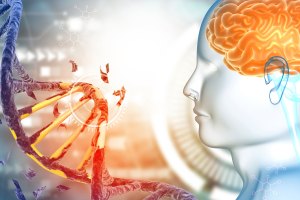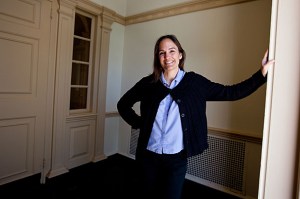Tag: Genetics
-
Health
Understanding interference
In a discovery that might eventually lead to new biomedical treatments for disease, researchers from Harvard’s Department of Molecular and Cellular Biology have identified two types of RNA that are able to move between cells as part of a process called RNA-interference (RNAi).
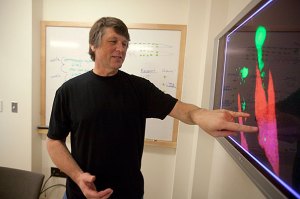
-
Health
Initiative challenges drug crisis
Taking aim at the alarming slowdown in the development of new and lifesaving drugs, Harvard Medical School is launching the Initiative in Systems Pharmacology, a comprehensive strategy to transform drug discovery by convening biologists, chemists, pharmacologists, physicists, computer scientists, and clinicians to explore together how drugs work in complex systems.

-
Health
Finding ovarian cancer’s vulnerabilities
In their largest and most comprehensive effort to date, researchers from the Broad Institute of Harvard and MIT and Dana-Farber Cancer Institute, a Harvard affiliate, examined cells from more than 100 tumors, including 25 ovarian cancer tumors, to unearth the genes upon which cancers depend. They call it Project Achilles.
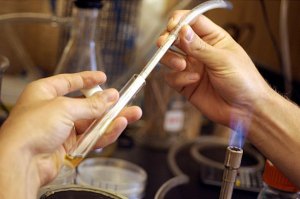
-
Campus & Community
Two are Abramson winners
Kevin Eggan, associate professor of stem cell and regenerative biology, and David Elmer, assistant professor of the classics, are the winners of the 2011 Roslyn Abramson Award for excellence in undergraduate teaching.
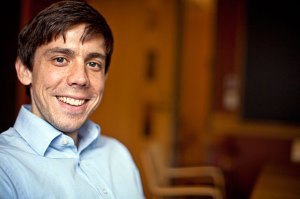
-
Health
Kidney close-up
Scientists at Harvard have created breathtaking three-dimensional images of an entire organ, moving a step closer to understanding the complex development of the kidney.
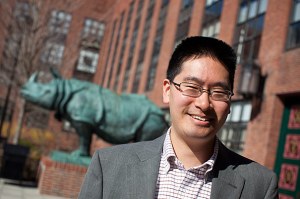
-
Health
Harnessing your creative brain
Shelley Carson, a researcher in the Psychology Department and lecturer at the Extension School, has penned a how-to book on harnessing your untapped abilities.
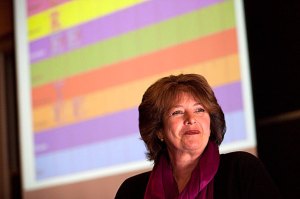
-
Health
Beyond DNA
On a day when Harvard celebrated the accomplishments of the Human Genome Project, the Radcliffe Institute hosted a scientist whose work focuses not just on DNA, but on the mechanisms that control its expression.

-
Health
Following the genomic road map
Harvard President Drew Faust hosted a panel discussion on the legacy of the Human Genome Project Feb. 22 at Sanders Theatre.

-
Science & Tech
The map of us
To mark the 10th anniversary of the publication of the Human Genome Map, Harvard President Drew Faust will host a panel discussion on the project next week (Feb. 22) in Sanders Theatre.

-
Health
‘Another set of fingers’
An interdisciplinary group of leading Harvard geneticists and stem cell researchers has found a new genetic aspect of cell reprogramming that may ultimately help in the fine-tuning of induced pluripotent stem cells (iPS) into specific cell types.
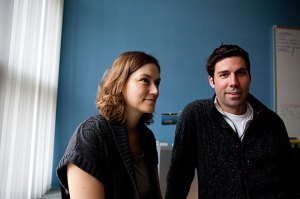
-
Health
Progress on obesity
Researchers have identified 18 gene sites associated with obesity and 13 associated with body fat distribution, helping to unravel the riddle of obesity.

-
Health
Hunting the missing health link
Researchers at Brigham and Women’s Hospital are launching a study of 100,000 patients to determine the link among genetics, lifestyle, and environmental factors in causing disease.

-
Health
Mom’s influence comes first
Genome-wide analysis of mice brains has found that maternally inherited genes are expressed preferentially in the developing brain, while the pattern shifts decisively in favor of paternal influence by adulthood.…
-
Health
Exploring a world within a world
Lichens provide an avenue for student scientific exploration of plant complexity.
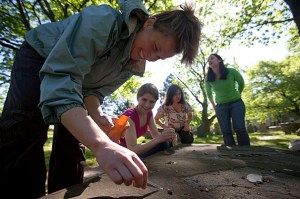
-
Science & Tech
Neanderthal genome tells a human story
A preliminary draft of the genome of the Neanderthal, our closest evolutionary relative, reveals in exquisite detail how this long-extinct member of the Homo genus relates to modern humans.
-
Health
Genes linked to breast cancer drug resistance
Harvard researchers at the Dana-Farber Cancer Institute have discovered a “gene activity signature” that predicts a high risk of cancer recurrence in some breast tumors that have been treated with…
-
Health
Tracking genetic traits over time
Fossils may provide tantalizing clues to human history, but they also lack some vital information, such as revealing which pieces of human DNA have been favored by evolution because they…
-
Health
Natural flu-fighting protein discovered in human cells
Harvard researchers report having discovered a family of naturally occurring antiviral agents in human cells, a finding that may lead to better ways to prevent and treat influenza and other…
-
Campus & Community
Bjork named Marshall Scholar
Harvard senior Samuel Bjork has won a prestigious Marshall Scholarship, allowing him to study for two years in the United Kingdom at the university of his choice.

-
Health
Three-dimensional structure of human genome deciphered
Scientists have deciphered the three-dimensional structure of the human genome, paving the way for new insights into genomic function and expanding our understanding of how cellular DNA folds at scales…
-
Health
Jack Szostak 2009 Nobel Laureate in Physiology or Medicine
Jack Szostak, a genetics professor at Harvard Medical School and Harvard-affiliated Massachusetts General Hospital (MGH), has won the 2009 Nobel Prize in physiology or medicine for pioneering work in the…
-
Campus & Community
‘Immortality Enzyme’ Wins Three Americans Nobel Prize
Three American scientists, including Jack W. Szostak, genetics professor at Harvard Medical School and Massachusetts General Hospital, shared the Nobel Prize in medicine for research linked to telomerase, an “immortality enzyme” that allows cells to divide continuously without dying and could play a role in the uncontrolled spread of cancer cells.
-
Campus & Community
Nobel Prize in Medicine shared by Harvard Medical School professor
Jack W. Szostak, a professor of genetics at Harvard Medical School, is one of three winners of the Nobel Prize in Physiology or Medicine this year, with Elizabeth Blackburn of the University of California, San Francisco, and Carol W. Greider of Johns Hopkins University School of Medicine….
-
Health
Growing her own answers
Assistant Professor Kirsten Bomblies examines plant immune responses for clues about genetic divergence.
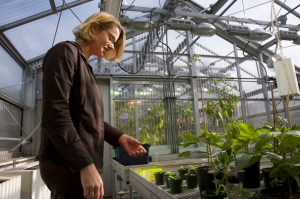
-
Science & Tech
Genetic sex determination let ancient species adapt to ocean life
A new analysis of extinct sea creatures suggests that the transition from egg-laying to live-born young opened up evolutionary pathways that allowed these ancient species to adapt to and thrive…
-
Health
Genome of Irish potato famine pathogen decoded
A large international research team has decoded the genome of the notorious organism that triggered the Irish potato famine in the mid-19th century and now threatens this season’s tomato and…
-
Health
Maternal, paternal genes’ tug-of-war may last well into childhood
An analysis of rare genetic disorders in which children lack some genes from one parent suggests that maternal and paternal genes engage in a subtle tug-of-war well into childhood, and…
-
Health
Study pinpoints novel cancer gene and biomarker
Dana-Farber Cancer Institute scientists’ discovery of a cancer-causing gene – the first in its family to be linked to cancer – demonstrates how the panoramic view of genomics and the…


